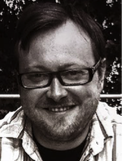
Open to all? We need to be more critical – and more connected – guest post by Leo Havemann
At the end of OER17, many of us were not quite ready to leave, and so as I was chatting with Helen Crump in a nearby pub, she asked me what had stood out for me about the conference. And (without thinking too much about it), I said that I think the ‘open worlds’ are becoming more critical, and more connected. Of course, as the closing plenary panel pointed out, with so many parallel sessions, every attendee has their own conference. There were certainly many sessions I would have loved to attend had I been able to. So my perception of OER17 is also a product of my selection of sessions. Perhaps there was an element of wishful thinking involved in my answer, but I did feel that criticality had been a major theme. Perhaps unsurprisingly at that politically saturated moment, the conference theme of ‘the politics of open’ elicited a range of passionate presentations that considered how open approaches in education can make a difference in the world, and suggested we think beyond the notion that openness operates as an unquestionable good. This connects to the ongoing discussion around what the open in Open Education means. For me, this meaning is very much multiple, and shifting. In context, these various meanings sometimes co-exist compatibly, but might also be in tension. For some of us, one of the key meanings of open is inclusive, but I don’t think we can assume that anything open automatically includes.
And so, looking forward to OER18. As one of this year’s keynote speakers, Open Education stalwart and general inspiration Lorna Campbell, has said of the OER series of conferences, “this is my conference”. Lorna has never missed one, she has co-chaired one and now keynotes another – so without a doubt, she must claim ownership – but I have to say, I feel the same. Although I have been an enthusiast and researcher in the Open Education space for a number of years now, my first OER conference was Edinburgh in 2016, and then London in 2017, and again as is now ‘tradition’, I’m thrilled/alarmed to be due to present two papers at OER18 (with my co-authors Javiera Atenas and Dawn Marsh respectively). A key change for me since this time last year is I am now officially a postgraduate research student at the Open University. Being part of OER16 and 17 certainly played a role in cementing my sense that this is the work I want to be doing, and these are the conversations I want to be having.
To me, one of the fantastic things about the OER conferences I have attended has been the commitment to look beyond OER to consider a broader question of what, why and how we open. Viv Rolfe and David Kernohan have been constant, engaged and thoughtful voices on these topics for those of us in the UK and beyond for many years and so I am delighted both that they are the co-chairs of OER18 and that they selected the theme of ‘Open to All’, to focus our attention on the vital question of what this movement is for. Because I believe that we can be pro-open, but at the same time, must ask questions of it, or rather of ourselves. In order to do this I think we must continue to work at being both more critical, and more connected.
My perspective on this topic has been shaped, inevitably, by my own history and contexts. For the last decade, I have been a learning technologist at Birkbeck, ‘London’s evening university’, an institution that has existed in current and prior incarnations for almost 200 years now. Since our inception as the London Mechanics’ Institute in 1823, we have been purveyors of (mostly) part-time, evening-taught higher education to the working Londoner, thereby opening access and widening participation in HE beyond the young and privileged. While the roles of learning technologies and digital content have inevitably grown enormously almost by stealth in this environment, we nonetheless tend to think in terms of the face-to-face class as the defining educational encounter for our students. We are very proud of this tradition and its longevity. On the other hand, the Open Education movement often appears to promise equal access to learning to all, at no cost, across the globe, thanks to the instant and unlimited shareability of digital learning materials. But do digital materials actually come at no cost? Are they truly accessible to everyone? Should we equate access to materials with the notion of ‘education’?
You might sense these questions are somewhat rhetorical (and have come up before!) but they still matter. Open Education is a wonderful thing. But I think we have to be wary of ‘selling it’ in a way that buys into ‘disruptive innovation’ narratives which suggest that digital content and practices are inherently open, contrasted against the sort of ‘closed’, analogue activities that go on in our public educational institutions. I don’t think we should gloss over the fact that open resources are never free to produce (even if the creator’s labour is donated). I don’t want to be part of advocating a model of education that marginalises the role of teachers and implies that they are simply inefficient vehicles for delivery of the same content that could better be accessed instantly from anywhere via your mobile device.
So far, so critical. How do we get more connected? I don’t claim to have all the answers, but I have some suggestions. For a start, we continue much of the time to have siloed conversations going on in our separate open movements. What does openness mean to those who are working on Open Access, Open Data, Open Science? What problems are they seeking to overcome through open approaches? What can Open Education learn from them – or do for them? And let’s also think beyond those who foreground the openness of their work, who share goals and values with us, even if they do not appear to speak the same language of openness. Librarians, learning developers, those who support inclusive practices and assistive technologies in education to make it more accessible for students with disabilities or SpLDs. All those (academics, teachers, even those oft-forgotten colleagues whose work behind the scenes enables learning and teaching) who believe in public education as a right rather than a privilege. We have a wealth of knowledge to offer them, and vice versa.
So yes, once again I am scrambling to be ready for two presentations (back to back this year even!). I love it of course, my only regret is that I would like to be in every parallel session. It can not be said often enough that Maren, Martin and all of Team ALT bring so much energy, passion, organisational skill and care to these events. As this may well be the last committee member blog post before the conference, I must take this chance to remind those of you who can’t make it to check the programme for sessions that are live streamed, or drop in to a Virtually Connecting session. And to those who are coming, see you in Bristol!

Leo Havemann is a learning technologist at Birkbeck, University of London and is a postgraduate research student at the Open University. He can be found on Twitter at @leohavemann and (occasionally) blogs at leohavemann.wordpress.com
